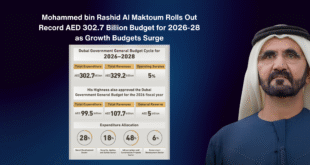Overview
Dubai has implemented several new New Health Laws in Dubai (2025), reflecting the city’s commitment to public health, safety, and modernization of its legal framework. These updates aim to enhance infectious disease control, regulate health-related businesses, and better protect the welfare of residents and visitors.
Table of Contents
Key Changes and Updates
1. Enhanced Infectious Disease Oversight
- Stricter Reporting Requirements: New Health Laws in Dubai (2025) providers are now legally required to rapidly report notifiable infectious diseases to authorities.
- Travel Regulation Authority: New Health Laws in Dubai (2025) health officials have been granted the power to impose travel restrictions on individuals infected with certain contagious diseases, preventing spread and protecting public health.
- Fines and Penalties: Non-compliance with new reporting or quarantine orders can result in hefty fines or further legal action.
2. Food & Nutrition Law Updates
- Mandatory Nutrition Labelling: All packaged food products must display clear nutritional information to ensure consumers make informed choices and help combat lifestyle illnesses.
- Inspection and Enforcement: Regular inspections and stricter penalties for misleading labels or non-compliance have been introduced.
3. Tobacco-Free Products Regulation
- Legalization of Tobacco-Free Nicotine: Dubai now allows the sale and use of tobacco-free nicotine pouches. These products are regulated to provide safer alternatives for those seeking to quit traditional smoking.
4. Occupational Health Safety
- Workplace Health Protections: Stronger enforcement of existing midday outdoor work bans during summer, with substantial fines for violations.
- Mandatory Health Checks: Certain occupations, especially those in food preparation or hospitality, face updated health screening requirements to reduce risks of public outbreaks.
5. Public Health Campaigns & Digital Health
- Expanded Education Initiatives: Authorities are running new health awareness campaigns focusing on nutrition, infectious disease prevention, and responsible use of digital health services.
- Telemedicine & e-Pharmacy Regulations: Introduction of guidelines to regulate virtual health consultations and e-pharmacies, balancing innovation with patient safety.
Enforcement and Public Impact
- Government Coordination: The Dubai Health Authority and other bodies coordinate inspections, enforce fines, and lead educational efforts.
- Business Responsibility: Restaurants, grocers, labor firms, and health service providers must quickly adapt operations to meet the new legal standards.
- Individual Protections: Residents benefit from improved safeguards—both from disease control measures and clear product information.
These laws demonstrate Dubai’s proactive approach to public health, prioritizing both prevention and transparency to support a safer, healthier city for all.
I. Introduction: Why the New Health Laws in Dubai 2025 Matter Now
The New Health Laws in Dubai 2025 mark a turning point for public health in the UAE and the wider Gulf. As Dubai introduces Law No. 5, the emirate sets unprecedented standards for disease prevention, healthcare access, and lifestyle safety. This blog dissects the sweeping changes, explores why they matter to residents, visitors, and businesses, and reveals how Dubai is influencing health policy across the region.
II. Context & Background: Rising Need for Public Health in the Gulf
A Regional Push Toward Health Security
Recent years have proven how quickly diseases can cross borders and impact economies. The tragic lessons from global pandemics, plus regional concerns over communicable diseases, have made robust health systems a top Gulf priority. With millions of expat workers, thriving tourism, and ambitious growth, Dubai faces unique challenges — making new, coordinated systems for disease control, food safety, and health rights more urgent than ever.
Who Is Affected?
The new Dubai health laws touch nearly everyone:
- Residents and Expats: Visa holders, workers, families, and the elderly.
- Travellers and Tourists: Entry now requires adherence to strengthened health declarations and sometimes, screenings.
- Businesses: Hospitality, F&B, logistics, and even real estate sectors must comply with stricter safety, hygiene, and reporting rules.
- Healthcare Providers: Must rapidly report diseases, manage vaccination, and ensure regulatory compliance — or face steep penalties.
III. Main Updates & Core Insights: Dubai’s Health Law No. 5 Explained
The 7 Biggest Changes in Dubai’s New Health Law
- Mandatory Medical Exams for Visas, Jobs, and Licences
- Centralised Oversight & Enforcement
- Stronger Family and Maternal Health Programs
- Prevention-Focused Disease Management
- Mandatory Reporting and Quarantine Authority
- Upgraded Food, Product, and Environmental Safety
- Public and Private Sector Cooperation
Policy Insights
This comprehensive approach is designed not just for current threats, but to foster a “prevention-first” culture. “Dubai’s new law unifies health protocols across work, travel, and commerce. It’s the most coordinated push we’ve seen in the Gulf,” notes Dr. Khalid Hussein, a Dubai-based health policy expert (quote paraphrased). Public health campaigns are ramping up through schools, media, and digital platforms, reinforcing health literacy and early screening habits for all demographics.
IV. Regional Impact: Ripple Effects Across the Gulf
How the UAE’s Health Overhaul Sets a New Bar
Dubai’s 2025 law has quickly become a model for its neighbors — from Saudi Arabia’s Vision 2030 focus on lifestyle disease reduction, to Qatar and Kuwait expanding worker health checks in line with international norms. Bahrain and Oman are likewise reviewing policies to integrate mandatory disease notification and digital screening for arrivals, using Dubai’s tech-driven system as guidance.
For multinational businesses, these changes mean aligning HR, travel, and facility management policies across borders. Meanwhile, regional collaboration forums have increased — especially around food safety, epidemic response, and medical research — with best practices often piloted in Dubai and then exported throughout the GCC.
Related: Best Travel Insurance in UAE for Expats: 2025 Surge Revealed (internal link)
Related: COVID-19 Surge in Gulf: New Variant NB.1.8.1 Sparks Urgent Concern (internal link)
V. Conclusion: Dubai’s Health Law Sets a Regional Standard
Law No. 5 of 2025 is more than regulatory reform — it’s a public health milestone that elevates safety, prevention, and compliance in every layer of Dubai society. As new norms take effect, the rest of the Gulf is watching—and updating their playbooks. For residents, visitors, and businesses, adapting early is not just smart—it’s now the law.
Looking ahead, Dubai’s commitment to health could mean even more integrated digital tools, smarter disease tracking, and a more resilient Gulf for all. Don’t miss ongoing updates from The Credible Story as the transformation continues.
 The Credible Story Trending stories that keep you hooked
The Credible Story Trending stories that keep you hooked




